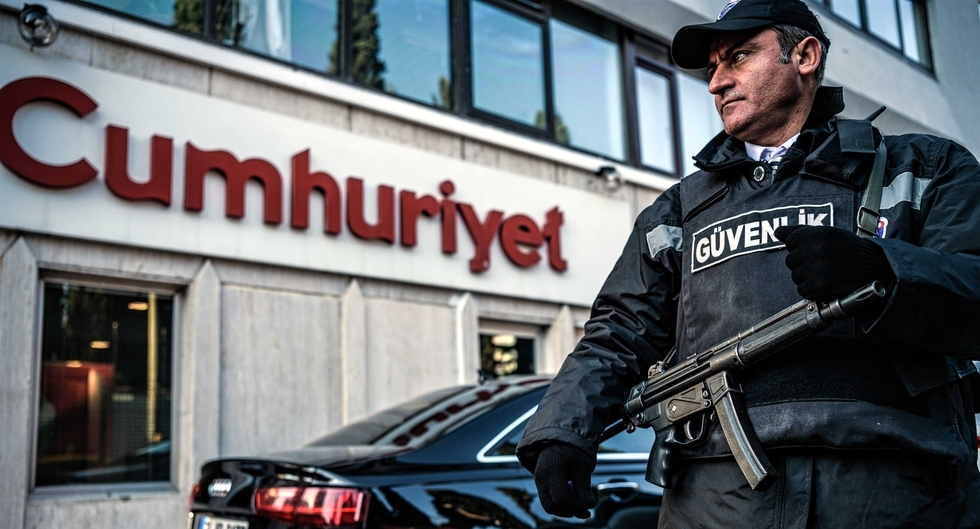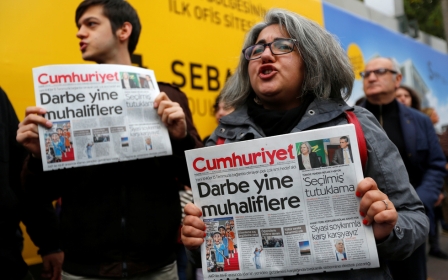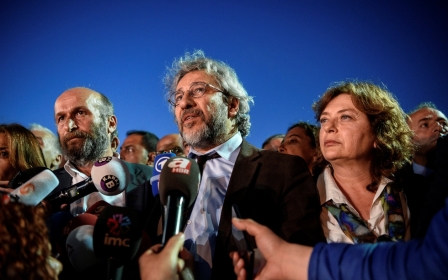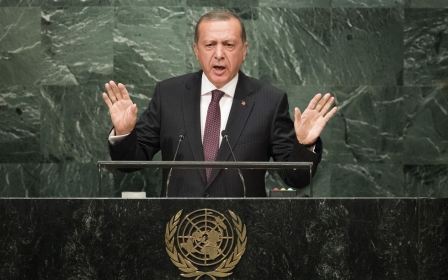Turkish opposition newspaper Cumhuriyet finds a voice in German media

Germany's leading newspapers have together offered their support to Turkish opposition newspaper Cumhuriyet, which has been raided by authorities, with the publication of a guest editorial.
Thirty-seven German newspapers and their websites, including Spiegel Online, Die Welt, Die Zeit and Sueddeutsche Zeitung, ran the article on Tuesday as German Foreign Minister Frank-Walter Steinmeier visited Turkey.
Cumhuriyet has been critical of President Recep Tayyip Erdogan and his Justice and Development Party since Turkey's failed coup in July, sparking raids on its offices and arrests of its editorial staff.
In the last fortnight alone, police have arrested editor-in-chief Murat Sabuncu, board chairman Akin Atalay and eight other staff members. The authorities have accused them of having links with the PKK, a Kurdish militant group, and of supporting US-based preacher Fethullah Gulen, whom Ankara blames for the failed coup.
The editorial continued: "We, the citizens of this country, need freedom of speech and the press, which is indispensable for every democratic country.
"The message of our editor-in-chief Murat Sabuncu, which he sent from prison and which filled our eyes with tears, is the principle of everyone who works at Cumhuriyet: We will only bow before our people and our readers."
Media targeted after coup
Earlier this year Can Dundar, Cumhuriyet's former editor-in-chief, fled to Germany while appealing against a prison term for revealing state secrets.
'Our work is hard, the pressure is great, the threat is serious. But nothing will stop us'
- Cumhuriyet editorial in German newspapers
The media has been among the targets of the Turkish government since the 15 July coup attempt. At least a hundred journalists have been arrested and 170 media outlets shut down, according to the Turkey Journalists' Association.
The wider crackdown has sparked tension between Ankara and Berlin and other European governments. Just before he left for Turkey, Steinmeier said: "When the existence of civil society is threatened, then democracy is also threatened.”
He added that the German government wanted to help "persecuted scientists, cultural workers, journalists, who can no longer work in Turkey come to Germany to work."
New MEE newsletter: Jerusalem Dispatch
Sign up to get the latest insights and analysis on Israel-Palestine, alongside Turkey Unpacked and other MEE newsletters
Middle East Eye delivers independent and unrivalled coverage and analysis of the Middle East, North Africa and beyond. To learn more about republishing this content and the associated fees, please fill out this form. More about MEE can be found here.





